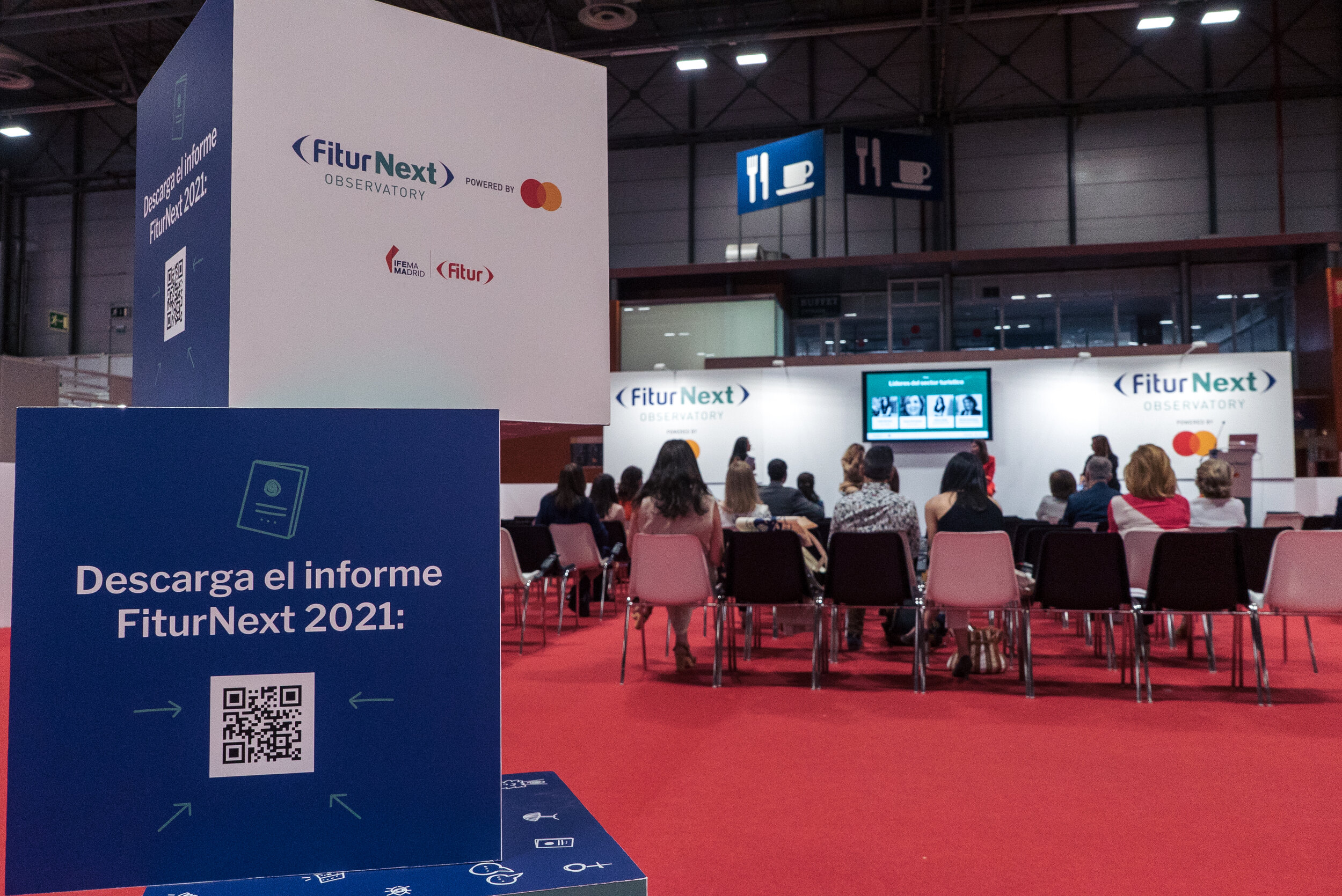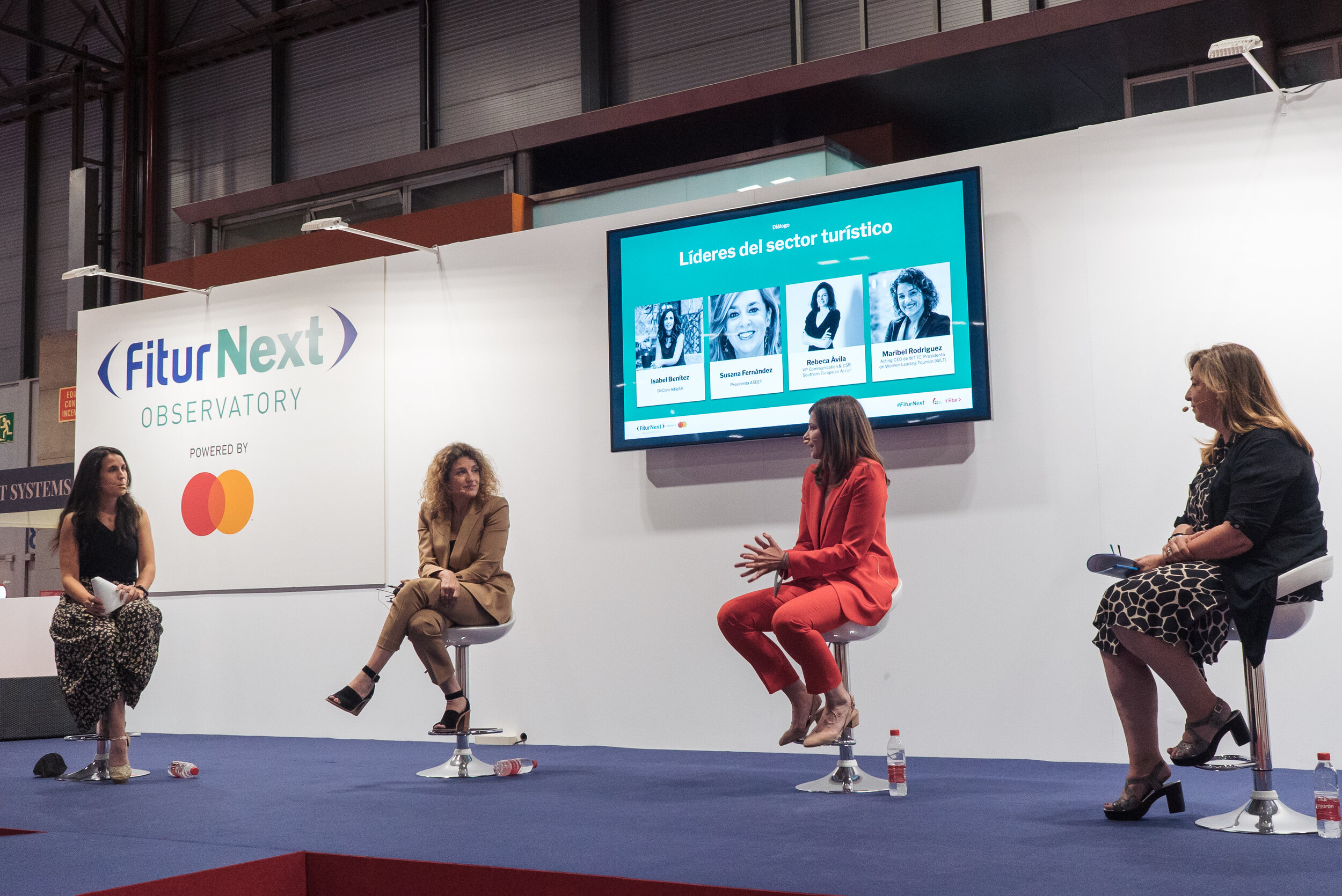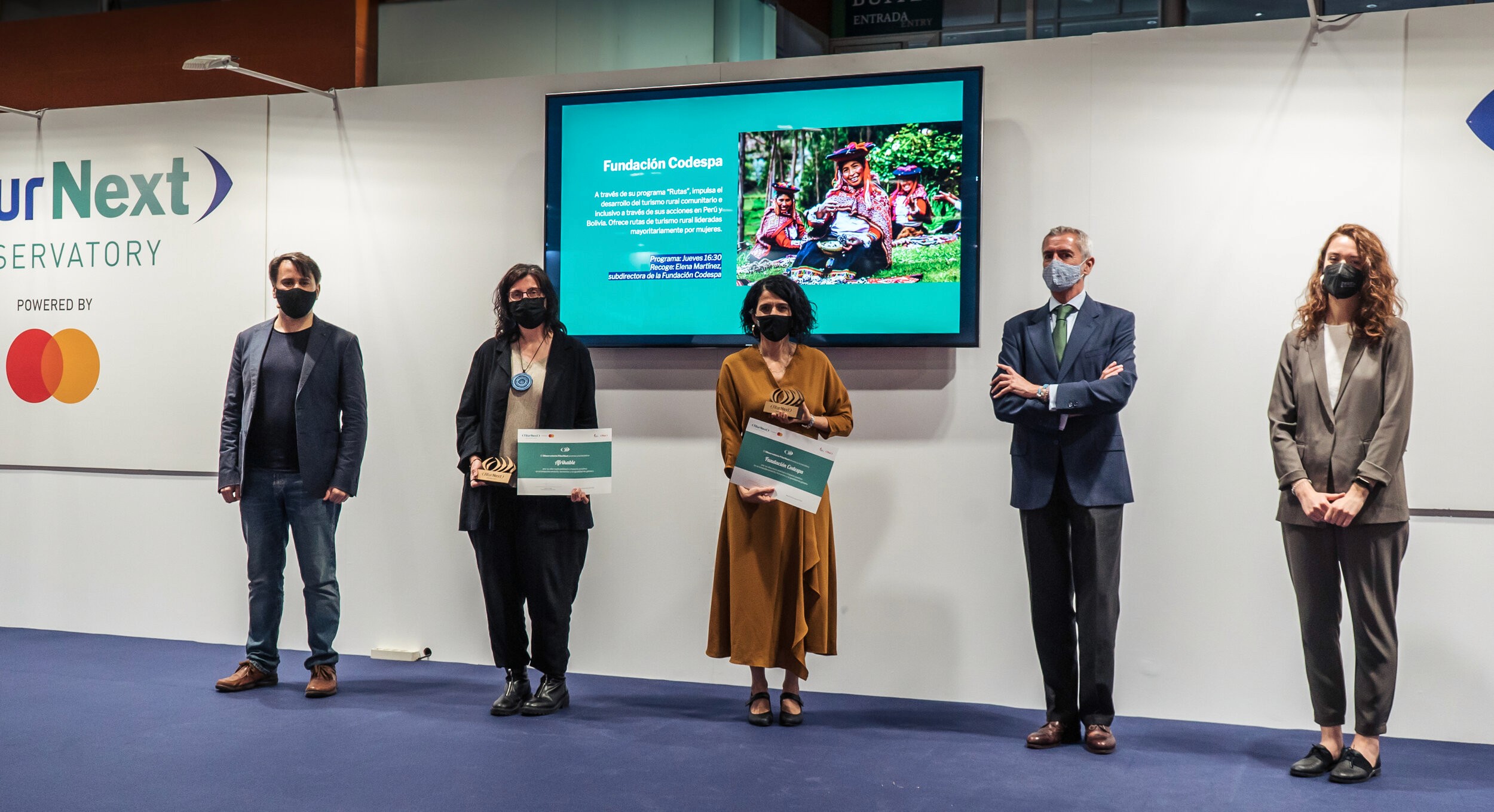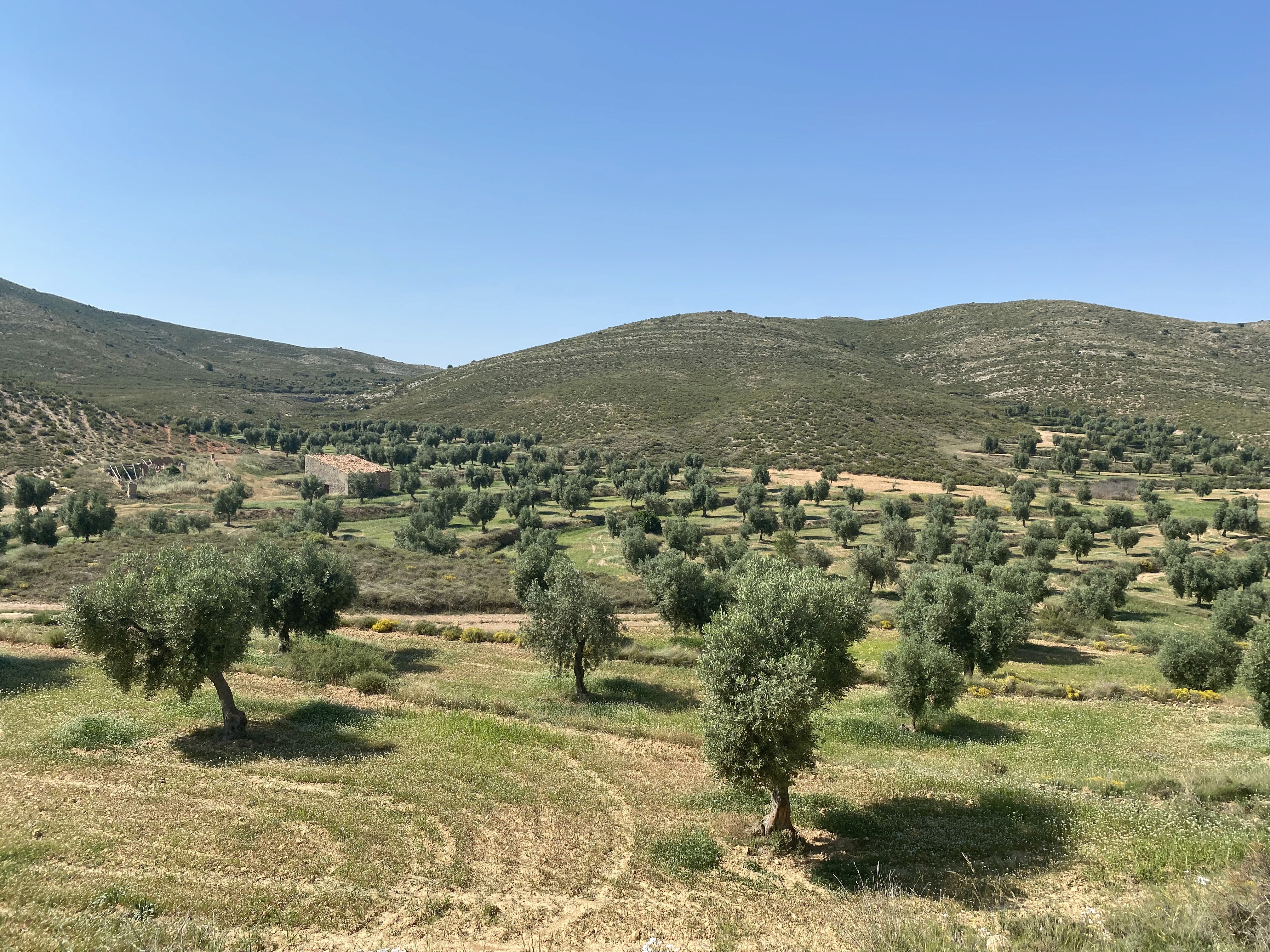Regenerative tourism
Regenerative tourism
FiturNext 2021: lessons on women's empowerment
FiturNext 2021: lessons on women's empowerment
24 de mayo de 2021


By Pako Rodríguez, consultant specialized in tourism. (Original publication in Spanish)
FiturNext, the observatory of Fitur dedicated to promoting best practices in the tourism sector, recently wrapped up its 2021 edition during the most important tourism fair in our territory, Fitur. As project managers, we at Ideas for Change accompanied once again winning initiatives, visitors, and exhibitors. And we did so with the satisfaction of contributing to a particularly significant theme, as this edition of FiturNext focused on how tourism can contribute to gender equality, based on the fifth of the Sustainable Development Goals (SDG 5).
The start of the pandemic marked the kickoff for this edition of the meeting and became the backdrop due to the challenges faced by the tourism sector and, consequently, the initiatives to which this call is directed. Despite this, during 2020 and part of 2021, we managed to analyze over 400 initiatives from 4 different continents.
New ways to measure the impact of tourism initiatives
As every year, FiturNext has awarded three initiatives that stand out for their contribution to solving the posed challenge. The uniqueness lies in the fact that these projects are chosen based on their replicability, that is to say, based on their potential to be replicated by other actors in different parts of the world with different resources. To achieve this, the Replicability Barometer is used, a model that we developed for Fitur to evaluate the adoption capacity of the initiatives.
And that's not all. In this edition of FiturNext, we applied, for the first time, the Impact Barometer, a tool that measures the potential of the projects. For this, we created three categories that different proposals could submit to: job opportunities, female leadership, and inclusive travel, to which we associated a series of impact indicators. We assessed this impact through at least one personal interview with the project promoters who responded to the form and scored a minimum on the replicability index and who are genuinely focused on both the proposed challenge (gender equality) and the tourism sector.

As an additional novelty, in this edition, we reached an agreement with the Sant Ignasi Faculty of Tourism and Hotel Management (Barcelona), for their final-year Tourism students to collaborate on the project. After an initial training of two sessions to immerse themselves in our methodology and the selection process for initiatives, students were required to work in groups to identify, analyze, and interview various projects and base their final work and the grade for the tourism innovation course on a report and a video about the selected initiative. An action that has yielded benefits both for the students and for the tourism initiatives: one of the female students who participated in the project, after making contact with the promoters of one of the initiatives to interview her, now leads it in Spain and has also been a finalist in FiturNext 2021.
Valuing the role of women in the tourism industry
The winning initiatives share a common goal of promoting women's presence in the tourism industry through employability and inclusivity:
Afrikable provides job opportunities for women in the tourism sector in Kenya. Through the "Solidarity Holidays" project, it promotes trips to the African country where all services are contracted to local women, which stimulates their professional development through training and independence within their family environment. The initiative facilitates work for between 50 and 100 women who are in vulnerable situations, generating a significant positive impact.
Through its program “Routes,” the Codespa Foundation promotes inclusive community rural tourism in Peru and Bolivia. It offers routes mostly led by women, a proposal that not only increases female presence in the sector but also gives greater weight to women in the family economy. A total of 312 female entrepreneurs have been able to create their own business thanks to its support.
Women in Travel CIC uses tourism as a driver for positive impact by providing employment opportunities to women at risk of social exclusion. More than 2,000 women have been trained in the profession thanks to their services, and one in three has secured employment. The initiative also promotes the recruitment of female talent in the industry.

Education, funding, and joint work, the great lessons learned
The FiturNext 2021 challenge and the knowledge conveyed by each of the participating initiatives have provided us with valuable lessons to promote female empowerment in the travel industry:
Education on general aspects (labor rights, rights as a woman, etc.), training on specific aspects (business creation, finance, languages, etc.), and mentoring (personalized follow-up) become the foundation for creating opportunities, especially in less developed environments. This is evidenced by some of the finalist initiatives of this year's such as Equality in Tourism, with its project Farm for the future, Open Eyes, and Fundación Barceló with their comprehensive scholarship program.
Funding of ventures through microcredits is a key factor for the development of female entrepreneurs. The work done by both the EnVía Foundation and the Santander Foundation through their Best Africa program, both finalists this year, are examples of this.
The creation of a community, as proposed by Women in E Travel, Active Woman, and Aseet, all finalists, is essential for creating bonds between people in similar situations who can support each other.
The development of a network of collaborators to rely on, as RaizUp does, allows for increased impact when carrying out a project.
Valuable teachings to ensure that gender equality in the tourism industry is, each day, a little closer.
By Pako Rodríguez, consultant specialized in tourism. (Original publication in Spanish)
FiturNext, the observatory of Fitur dedicated to promoting best practices in the tourism sector, recently wrapped up its 2021 edition during the most important tourism fair in our territory, Fitur. As project managers, we at Ideas for Change accompanied once again winning initiatives, visitors, and exhibitors. And we did so with the satisfaction of contributing to a particularly significant theme, as this edition of FiturNext focused on how tourism can contribute to gender equality, based on the fifth of the Sustainable Development Goals (SDG 5).
The start of the pandemic marked the kickoff for this edition of the meeting and became the backdrop due to the challenges faced by the tourism sector and, consequently, the initiatives to which this call is directed. Despite this, during 2020 and part of 2021, we managed to analyze over 400 initiatives from 4 different continents.
New ways to measure the impact of tourism initiatives
As every year, FiturNext has awarded three initiatives that stand out for their contribution to solving the posed challenge. The uniqueness lies in the fact that these projects are chosen based on their replicability, that is to say, based on their potential to be replicated by other actors in different parts of the world with different resources. To achieve this, the Replicability Barometer is used, a model that we developed for Fitur to evaluate the adoption capacity of the initiatives.
And that's not all. In this edition of FiturNext, we applied, for the first time, the Impact Barometer, a tool that measures the potential of the projects. For this, we created three categories that different proposals could submit to: job opportunities, female leadership, and inclusive travel, to which we associated a series of impact indicators. We assessed this impact through at least one personal interview with the project promoters who responded to the form and scored a minimum on the replicability index and who are genuinely focused on both the proposed challenge (gender equality) and the tourism sector.

As an additional novelty, in this edition, we reached an agreement with the Sant Ignasi Faculty of Tourism and Hotel Management (Barcelona), for their final-year Tourism students to collaborate on the project. After an initial training of two sessions to immerse themselves in our methodology and the selection process for initiatives, students were required to work in groups to identify, analyze, and interview various projects and base their final work and the grade for the tourism innovation course on a report and a video about the selected initiative. An action that has yielded benefits both for the students and for the tourism initiatives: one of the female students who participated in the project, after making contact with the promoters of one of the initiatives to interview her, now leads it in Spain and has also been a finalist in FiturNext 2021.
Valuing the role of women in the tourism industry
The winning initiatives share a common goal of promoting women's presence in the tourism industry through employability and inclusivity:
Afrikable provides job opportunities for women in the tourism sector in Kenya. Through the "Solidarity Holidays" project, it promotes trips to the African country where all services are contracted to local women, which stimulates their professional development through training and independence within their family environment. The initiative facilitates work for between 50 and 100 women who are in vulnerable situations, generating a significant positive impact.
Through its program “Routes,” the Codespa Foundation promotes inclusive community rural tourism in Peru and Bolivia. It offers routes mostly led by women, a proposal that not only increases female presence in the sector but also gives greater weight to women in the family economy. A total of 312 female entrepreneurs have been able to create their own business thanks to its support.
Women in Travel CIC uses tourism as a driver for positive impact by providing employment opportunities to women at risk of social exclusion. More than 2,000 women have been trained in the profession thanks to their services, and one in three has secured employment. The initiative also promotes the recruitment of female talent in the industry.

Education, funding, and joint work, the great lessons learned
The FiturNext 2021 challenge and the knowledge conveyed by each of the participating initiatives have provided us with valuable lessons to promote female empowerment in the travel industry:
Education on general aspects (labor rights, rights as a woman, etc.), training on specific aspects (business creation, finance, languages, etc.), and mentoring (personalized follow-up) become the foundation for creating opportunities, especially in less developed environments. This is evidenced by some of the finalist initiatives of this year's such as Equality in Tourism, with its project Farm for the future, Open Eyes, and Fundación Barceló with their comprehensive scholarship program.
Funding of ventures through microcredits is a key factor for the development of female entrepreneurs. The work done by both the EnVía Foundation and the Santander Foundation through their Best Africa program, both finalists this year, are examples of this.
The creation of a community, as proposed by Women in E Travel, Active Woman, and Aseet, all finalists, is essential for creating bonds between people in similar situations who can support each other.
The development of a network of collaborators to rely on, as RaizUp does, allows for increased impact when carrying out a project.
Valuable teachings to ensure that gender equality in the tourism industry is, each day, a little closer.


